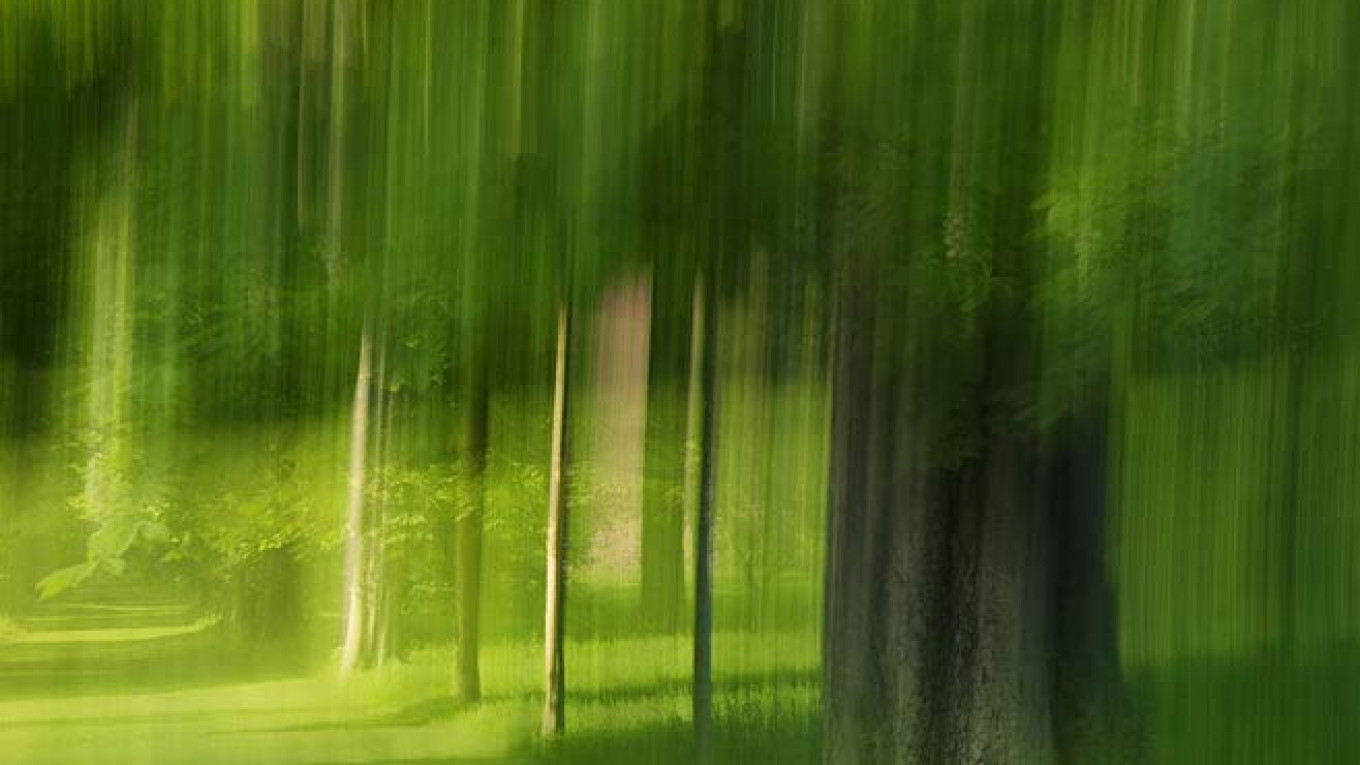One of the gems of this year's Moscow Photobiennale is Nature Translated, a mesmerizing exhibition by British photographer Charles March.
After showings at London's Bermondsey Project Space in 2012, and at St. Petersburg's Marble Palace earlier this year, Nature Translated is now on display at Moscow's Mouravieff-Apostol Museum.
The venue was once a famous meeting place of the Decembrists, a radical movement of 19th-century Russian revolutionaries; and its classical interior, tastefully renovated, nicely fuses with Charles March's contemporary photographs.
The photographs are all of trees, which would normally be considered a rather tranquil subject matter. Yet Charles March has spent much his of life bringing a sense of speed to tranquil places. At Goodwood, Charles March's family estate, where he took most of his photographs for Nature Translated, he has spent more than 20 years running the Festival of Speed — combining the traditional elegance of his country home with the largest luxury car festival in the world.
So it is perhaps no surprise that the man behind the Festival of Speed looks to inject a giddy dynamism into his photographs.
The trees he captures in winter exude a shimmering resilience — dug in against heavy snow; while in summer, the trees have an electric green vibrancy, with some branches seeming almost translucent: a blurry and triumphant haze surrounds them. Bright light pervades.
It is the result of lengthy exposure during each shot, as well as March's spontaneous "shaking" of his camera — an effect that works best in his monochrome "Busaco's Grave," where a few sharp twists of his camera have sent light swirling across the photograph like celestial wind.
"The idea is to create something that makes people think a bit differently about what they see —something that emotionally involves them," says Charles March, who perhaps inherited this idea from filmmaker Stanley Kubrick, a man known for his emotionally charged films — and a man who March worked for at the start of his career, shooting stills for "Barry Lyndon," Kubrick's cult classic.
"What I am looking for," March continues, "is the quality in the print and the quality of the structure of the image, and not to be distracted by too much detail."
March's photographic principles are surprisingly reminiscent of the Wanderers' movement of 19th-century Russian impressionist painters. The vivid forestry and landscape paintings of Isaac Levitan and Ivan Shishkin brim with a similar guiding force: namely, that to capture and convey a place's emotional essence is paramount. Without it, you have obsession over detailed precision; which is, in effect, a sterile anatomization — one that leaves nature's poetic intensity lost, fatefully, in translation.
"Nature Translated" is on display until May 18 at the Mouravieff-Apostol House and Museum 23/9 Staraya Basmannaya Ulitsa, Bldg. 1. More information can be found at: charlesmarch.com.
Contact the author at artsreporter@imedia.ru
A Message from The Moscow Times:
Dear readers,
We are facing unprecedented challenges. Russia's Prosecutor General's Office has designated The Moscow Times as an "undesirable" organization, criminalizing our work and putting our staff at risk of prosecution. This follows our earlier unjust labeling as a "foreign agent."
These actions are direct attempts to silence independent journalism in Russia. The authorities claim our work "discredits the decisions of the Russian leadership." We see things differently: we strive to provide accurate, unbiased reporting on Russia.
We, the journalists of The Moscow Times, refuse to be silenced. But to continue our work, we need your help.
Your support, no matter how small, makes a world of difference. If you can, please support us monthly starting from just $2. It's quick to set up, and every contribution makes a significant impact.
By supporting The Moscow Times, you're defending open, independent journalism in the face of repression. Thank you for standing with us.
Remind me later.






